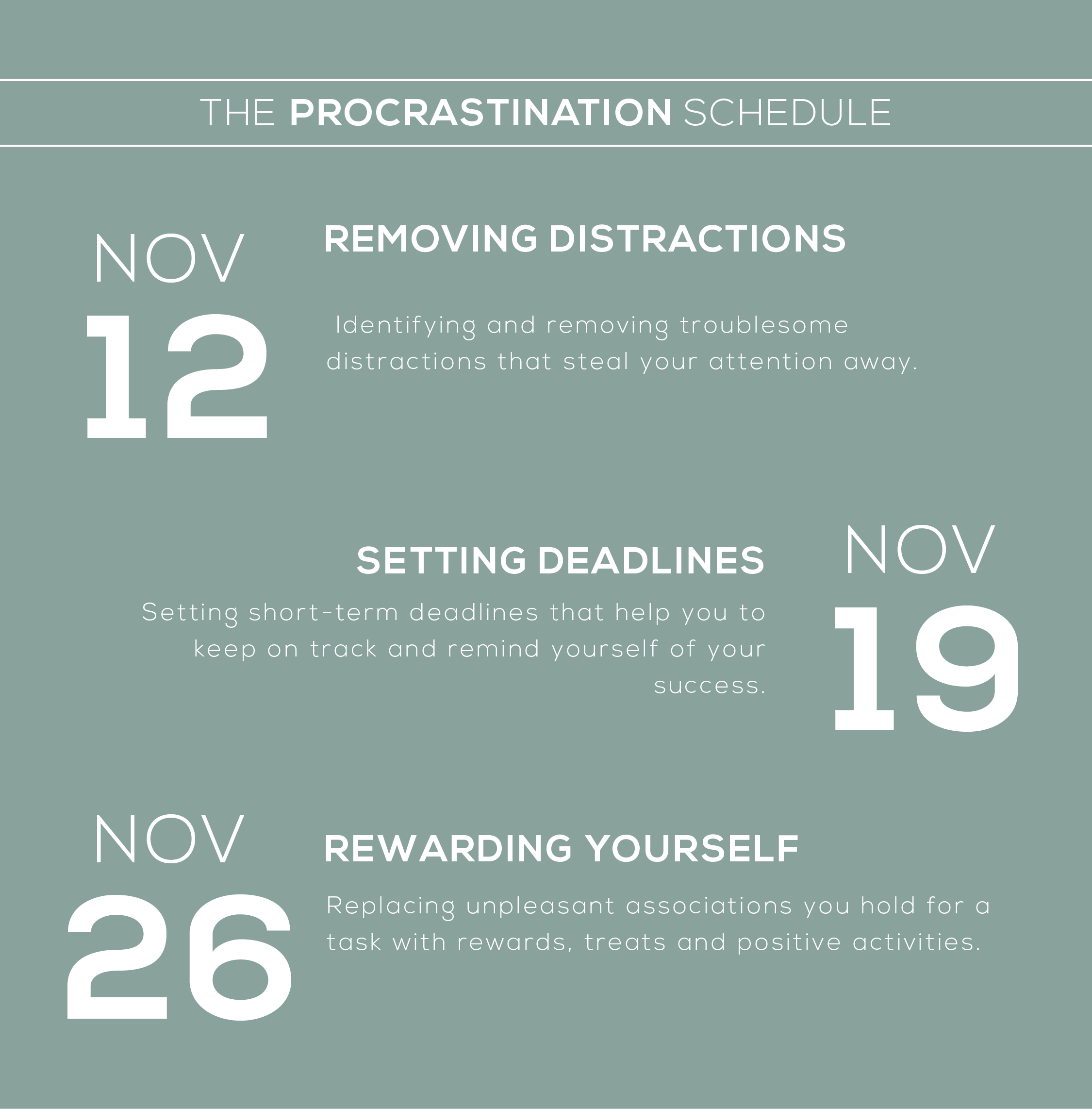Chances are a lot of us reading this should probably be doing something else… Maybe you’re putting off sending an email or distracting yourself from daily chores. Don’t worry, we’re all guilty of selectively choosing what we attend to; delaying, if not avoiding tasks that need to be done. This has become known as ‘procrastination’; defined as the tendency to delay tasks until the last minute. Most of us will have heard of this before and will have a fairly confident view on what it means. The problem is, the term has become overused and mistakenly thought of as an act of pure laziness and boredom. Each time someone fails to meet a deadline or appears distracted by other things, we assume that they don’t care about that activity and label them as a ‘procrastinator’. In actual fact, procrastination is more complex than you’d think, emerging from ingrained aspects of our human psyche. In truth, there isn’t just one singular reason that causes people to put off these tasks; it can be influenced by many different factors that all result in problematic delays. Now we cannot condone the act of procrastination itself, but we can try and highlight some of the innocent tendencies it arises from that may help us understand what’s going on!
There’s no hiding the fact that procrastination involves delaying a task until the last moment or potentially even until it’s too late. However, if you cast your mind back to our previous blog on ‘mental mind-games’, you’ll understand how our brain can trick us into causing these delays. Unfortunately, humans are pretty poor at planning the time it will take to complete things. Known as the ‘Planning Fallacy’, we tend to either overestimate or underestimate the amount of time something will take. This is because we latch on to past memories and forget to account for those unpredictable events that will get in the way. We are left with a miscalculated assumption of the time that’s needed, determining the amount of effort put into finishing the task at hand. So when you’re sitting there avoiding a task that has an upcoming deadline, it may actually be your subconscious causing you to assume there’s still plenty of time left! In short, procrastination is not necessarily born from a conscious, deliberate decision to avoid something important. Instead, it is equally likely that our unconscious mind has tricked us into thinking we’ve got time to do it tomorrow instead!
In some scenarios the cause can be very a different story, moving from the thoughts in our mind to the social pressures around us that give rise to procrastination as well. In fact, surprising amounts of people’s behaviour are influenced by what they think is happening in someone else’s head. We are after all social beings that allow our actions and attitudes to be dictated by others. The technical term is the ‘Social Desirability bias’, whereby we strive to present ourselves publically in the most positive way. If we feel that even attempting to complete a task will make us look worse than not doing so at all, we will become motivated to avoid that task altogether! So whilst it’s easy to assume that someone is being lazy, their procrastination may actually be born from a deep-rooted insecurity, or fear of being judged negatively by others around them. All in all, procrastination is a tricky concept that can be influenced by many more factors than those discussed in this blog. However, by understanding some of the thought processes and external pressures behind this avoidance, we can begin reducing the amount we all tend to procrastinate!
Maybe next time you see someone put off an important task don’t be so quick to assume that they’re lazy. Unknown to us, there are often a lot of things going on inside their head that will be driving these ‘irrational’ delays.
THE PROCRASTINATION SERIES
To help you understand more about what drives procrastination, we’ll be exploring it throughout the month ahead. Whilst sharing more reasons people tend to put off important tasks, we’ve also prepared a few practical exercises that you can put in place to help minimise any further delays!

If you are not yet subscribed to the Outlook, sign up today! As well as providing practical skills for wellness and personal development, we will be sharing positive news happening all around you.
Click here for more useful information, tips, tricks and advice on procrastination!

Blog Author: Ben Oliver - Feb 8th 2021



